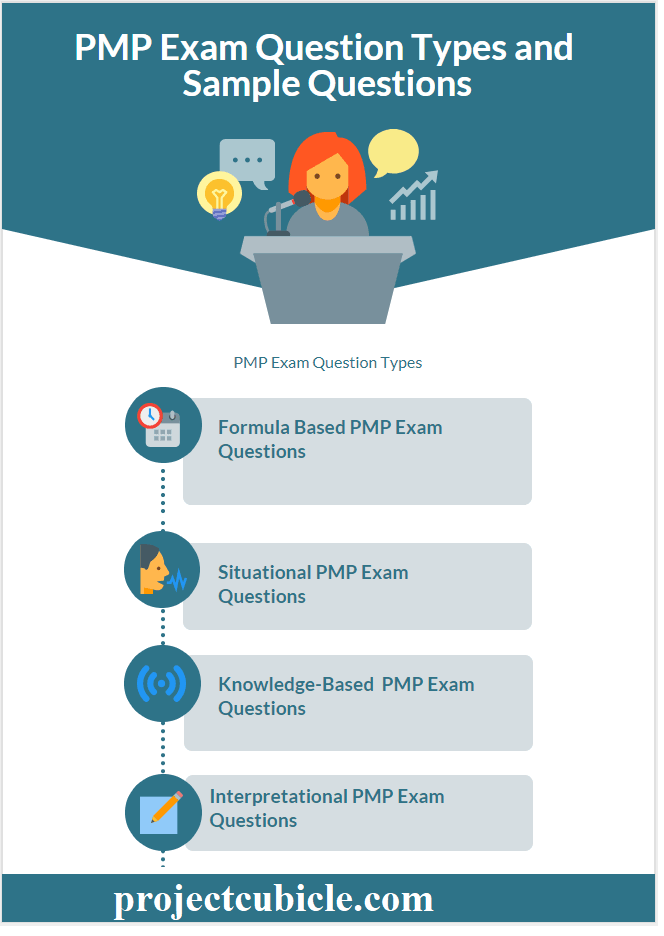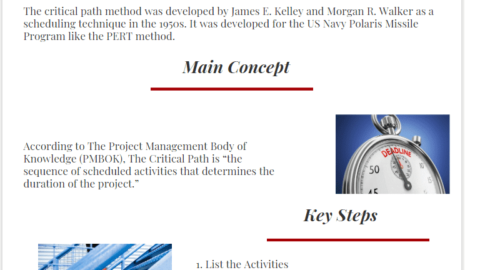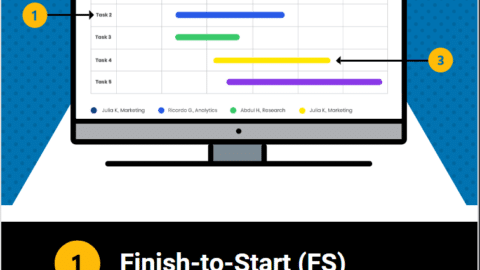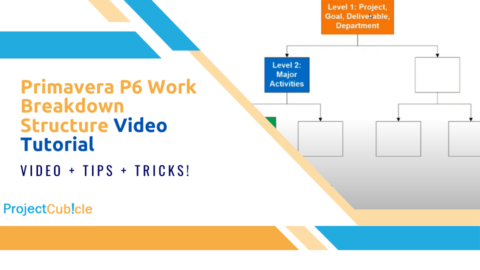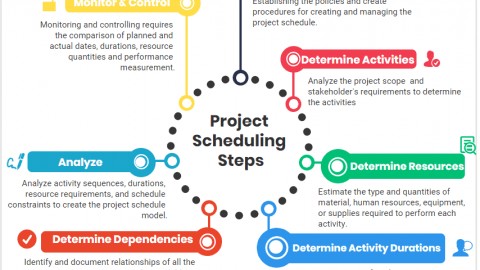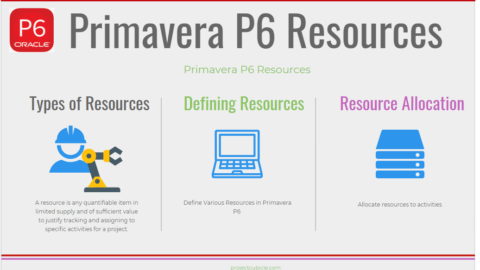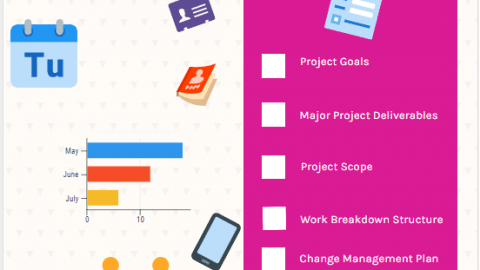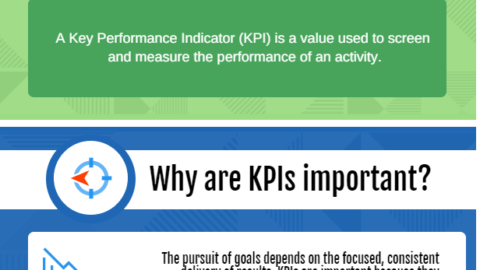Sample PMP Exam Questions and Answers
The PMP (Project Management Professional) is an internationally recognized certification and the PMP Exam is conducted by the PMI (Project Management Institute). The exam includes multiple-choice questions that test the professional’s knowledge and experience on the project management processes and knowledge areas. During the exam, you will encourage Formula Based, Knowledge-Based, Situational, and Interpretational PMP Exam Questions. Before getting the exam, practicing with sample PMP Exam questions provides you a general understanding of the question types. In this article, we will talk about some of the common PMP Exam Questions and answers.
Table of Contents
Classification of Questions
PMP Exam questions can be classified into four categories;
- Formula Based
- Situational
- Knowledge-Based
- Interpretational
All the questions are multiple-choice and each question type tests your knowledge and experience in the field of project management.
Formula Based PMP Exam Questions
Formula-based questions of the PMP Certification Exam necessitates knowing formulas to solve. You need to understand each formula to improve your decision-making. Below are some of the examples.
Question 1
What is the total number of potential communication channels in a project which involves 25 stakeholders?
Answer 1
The below formula is used to calculate the total number of communication channels.
n(n – 1)/2
n = number of stakeholders.
25 x (25-1)/2 = 300
Question 2
A project has a 65% chance of a $120,000 profit and a 35 percent of a $150,000 loss. Calculate the Expected Monetary Value for the project.
Answer 2
Expected Monetary Value = Probability × Impact.
We will calculate both positive and negative values to calculate the EMV.
0.65 × $120,000 = $78,000
0.35 × $150,000 = $52,500
Expected Monetary Value = $78,000 – $52,500 = $25,500 profit
Question 3
You are assigned as the project manager for an ongoing construction project where 50 villas are to be built over 20 months. The budget of the project is $25,000,000. 12 months have been passed, 20 villas have been built and $14,000,000 have been spent. Calculate the Cost Performance Index (CPI) of this housing project.
Answer 3
Cost Performance Index (CPI) = Earned Value / Actual Cost
Earned Value (EV) = ($25,000,000 / 50 ) x 20 = $10,000,000
Actual Cost (AC) = $14,000,000
CPI = $10,000,000 / $14,000,000 = 0.71
Situational PMP Exam Questions
Situational questions involve real-life project management situations to test your ability and knowledge. You need to identify what is behind the given situation and apply your expertise. While solving situational questions, choose the best among several correct answers.
Here below you can find an example question.
Question 1
You are employed as a project manager for an ongoing project. When you analyzed the project documents, you realized that the Project Charter which describes the responsibilities and authorities of the project manager is missing. You talked about this issue with the project sponsor and he told you that they executed many projects without a project charter. He also told that if it is an essential project document, you should prepare it. Where can you find a template for a Project Charter?
A. Project Baseline
B. Enterprise Environmental Factors
C. Project Management Plan
D. Organizational Process Assets
Answer 1
Organizational Process Assets involve templates for project documents. However your company has never created a project charter before, you cannot find a project charter template by checking the Organizational Process Assets. You can find this template on websites or the internet which are included in Enterprise Environmental Factors.
Knowledge-Based PMP Exam Questions
Knowledge-based PMP exam questions test your knowledge of basic project management concepts. Most of the answers are based on the PMBOK Guide. You should know basic concepts such as project management processes and knowledge areas, project management methodologies, tools, techniques, etc.
Question 1
Which of the following is true for a Program?
A. Program is a type of work schedule
B. Program is a component of a big project
C. Program is a collection of related projects
D. All of the above
Answer 1
The correct answer is “C”.
Question 2
Reserve Analysis is used for which of the below processes?
A. Define Activities
B. Estimate Activity Resources
C. Resource Leveling
D. Estimate Activity Durations
Answer 2
The correct answer is “D”.
Question 3
Early Start (ES) of an activity is 4, Late Start (LS) is 14, Early Finish (EF) is 11, and the Late Finish (LS) is 21. Which of the following is true for this activity?
A. Activity is on the critical path
B. Activity is delaying
C. Activity is performing well
D. Activity is not on the critical path.
Answer 3
When you subtract the late dates from the early dates (LS-ES or LF-EF) you will see that the total float of the activity is 10. So the activity is not on the critical path. The correct answer is “D”.
Interpretational PMP Exam Questions
An interpretational PMP Exam question provides you a situation and tests if you can select the best option. For instance, a question may provide you a schedule performance index of a project and ask you about the performance of the project.
Question 1
If the Cost Performance Index (CPI) of a construction project is greater than 1, how well the project is performing?
A. The project is behind the schedule
B. The project is ahead of schedule
C. The project is under the budget
D. The project is on budget.
Answer 1
The Cost Performance Index (CPI) demonstrates the cost efficiency of a project. If the CPI is greater than 1, you spend less than you planned so the project is under the budget.
Technique-based PMP Exam Questions
Question 1
The project team will report the minimum project duration to the project manager. Below is the network diagram of the project schedule.
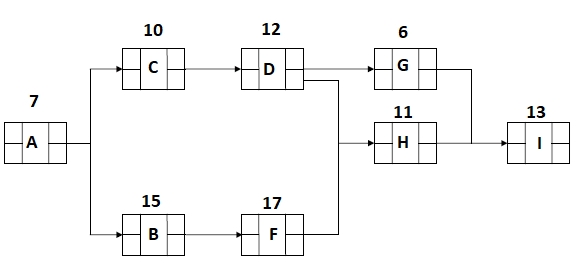
Technique-based PMP Exam Question
Which of the following durations should the project team report to the project manager?
A. 16 days
B. 11 days
C. 55 days
D. 63 days
Answer 1
The project team will perform forward and backward calculations to calculate the critical path and the minimum duration of the project.
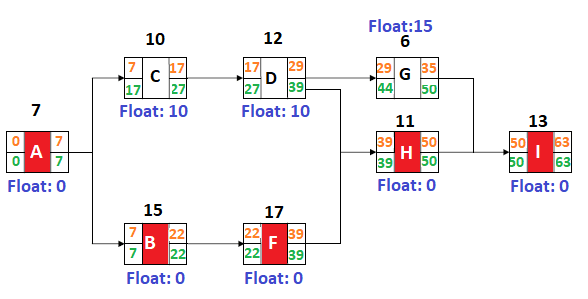
Technique-based PMP Exam Question – Answer
In this example, the path Start-A-B-F-H-I has the longest duration and is the critical path of the schedule. The correct answer is “63” days.
Summary
In this article, we discuss different types of Sample PMP Exam Questions. If you want to pass the exam you need more exam preparation. During the exam, read the questions carefully and control your stress to avoid mistakes. Understanding question types will help you to develop your own strategy to give correct answers.
See Also

11+ years strategic communications, marketing, and project management experience. I am a trainer at StarWood Training Institute, focusing on online courses for project management professionals.

